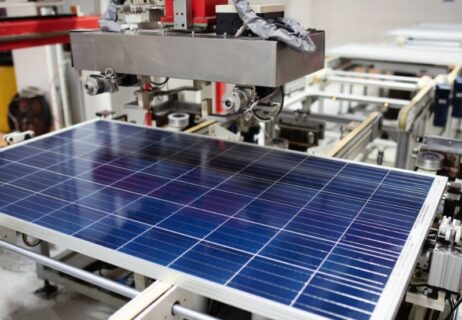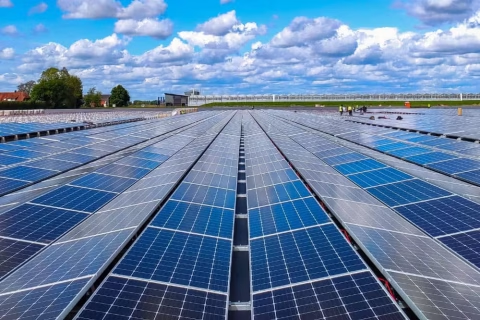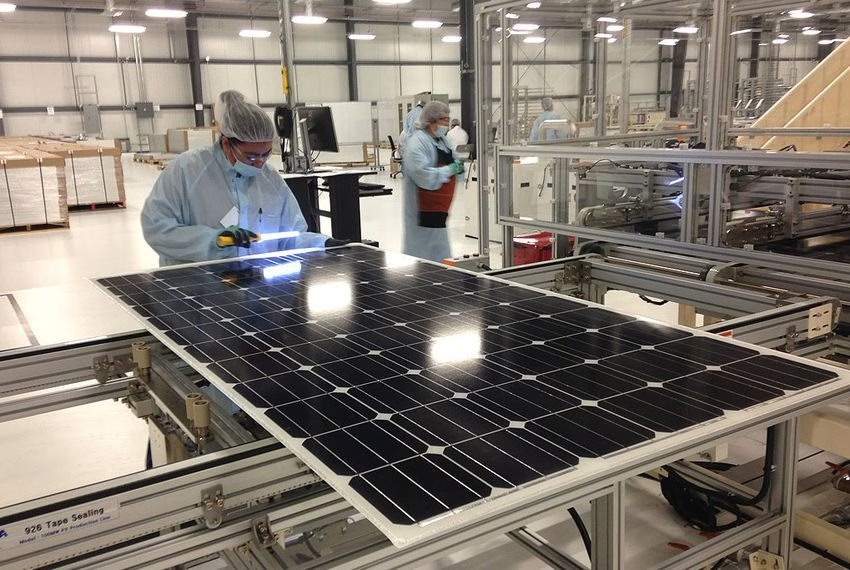Nigeria plans to build a 1 GW solar photovoltaic (PV) panel manufacturing factory under the recently formed Solarge Nigeria Limited. Solarge is a public-private partnership between the Rural Electrification Agency (REA), Infrastructure Corporation of Nigeria (InfraCorp) and Dutch solar manufacturer Solarge BV, which was formalized in a tripartite agreement in September 2025. The solar panel initiative is backed by binding procurement commitments, including REA’s pledge to source at least 200 megawatts of locally made modules annually over five years. This aims to localize production and also achieve 50 percent local supply within three years. The modules will be used in national electrification programs as part of Nigeria’s industrial and energy transition strategy. Nigeria also recently agreed to work with the Islamic Development Bank to build a 100 MW solar PV farm in the state of Niger.

Federal Government to Construct 1000MW Nigeria Solar Panel Factory
Reported September 18, 2025 – Nigeria’s Federal Government has made an announcement of a major step in its renewable energy drive with the signing of a landmark agreement to establish a 1,000-megawatt solar photovoltaic panel manufacturing facility in the country. The Nigeria Solar Panel Factory will strengthen local production, cut import dependency, and speed up Nigeria’s energy transition. In a move to see this transition come to pass, Nigeria also entered a partnership with the World Bank to construct solar mini grids.
The deal was signed on Wednesday at the Infrastructure Corporation of Nigeria (InfraCorp) office in Abuja. Speaking at the signing event, Tanimu Yakubu Kurfi, Director General of the Budget Office, highlighted the project as a clear example of how innovation and collaboration are driving progress. He emphasized that it reflects President Bola Tinubu’s Renewed Hope Agenda in action. This project will bring together three key partners namely. These partners are: the Rural Electrification Agency, InfraCorp, and Dutch renewable energy company Solarge BV. Together, these companies have set up Solarge Nigeria Limited. This is a special-purpose vehicle to build and operate the facility.

1000MW Nigeria Solar Panel Factory Project Factsheet
Name: Solarge Nigeria Limited Solar Photovoltaic (PV) Panel Manufacturing Facility.
Objective: To establish a 1,000-megawatt (1GW) solar panel manufacturing plant in Nigeria to strengthen local production, reduce import dependency, and accelerate the nation’s energy transition.
Production capacity: 1 GW (1,000 MW) of solar panels per year.
Offtake agreement: The Rural Electrification Agency (REA) has committed to a binding offtake agreement to procure at least 200 MW of solar modules annually over five years. This also provides a guaranteed market for the panels produced.
Technology transfer: The partnership with Solarge BV is expected to facilitate significant technology transfer and capacity building in Nigeria’s renewable energy sector.
Job creation: The initiative is projected to create thousands of direct and indirect jobs, from manufacturing to installation and maintenance.
Energy sovereignty: By localizing production, the project aims to reduce Nigeria’s reliance on imported solar panels and enhance its energy security.
Environmental impact: The factory will support Nigeria’s energy transition goals by increasing the availability of locally-made solar panels, which will in turn reduce the country’s reliance on expensive and high-emission diesel generators.
Ownership
As revealed by the details after the signing, Solarge BV will hold the largest stake in the project. It will have 49 per cent ownership. Furthermore, InfraCorp and REA will control 26 per cent and 25 per cent respectively.
Also, officials elaborated that this balance of ownership reflects a public-private partnership model aimed at mobilising investment. Additionally, the partnership will enforce accountability, and guarantee technology transfer.
Significance of the Project
The new factory is in line with the National Public Sector Solarisation Initiative and the Renewed Hope Infrastructure Development Fund. The project developers will boost local production through the facility. They will also reduce Nigeria’s reliance on imports, and actively support the country’s transition to cleaner, sustainable energy sources.
Roles of Companies in the Development of the Project
InfraCorp is expected to utilize its expertise in investment mobilisation. On the other hand, REA will provide policy leadership in rural electrification and solarisation. As for Solarge BV, it will bring its advanced manufacturing technology and global experience.
The 1GW solar PV plant will be a state-of-the-art facility, much like the Bayelsa Solar Project. Both of which stand as major milestones in advancing Nigeria’s sustainable energy development. InfraCorp will design the project to achieve 50 per cent local content within its first three years of operation. Additionally, beyond supplying energy, the project will actively drive technology transfer. Also, it will enable skills development and generate thousands of direct and indirect jobs.

Leave a Reply